Broccoli is a vegetable that is related to cauliflower and cabbage. It is a member of the Brassica family, which also includes kale and Brussels sprouts. Broccoli leaves are the florets that make up the flower head of the broccoli plant.
Broccoli is one of the most popular vegetables in the world, and it is easy to see why. Its taste is delicious, and it is packed with vitamins and minerals.
Unfortunately, the same goes for pests that love to eat broccoli leaves, and if you are growing your own broccoli in a garden, you will want to keep these nasty pests away! Let’s answer the question, what is eating my broccoli leaves.
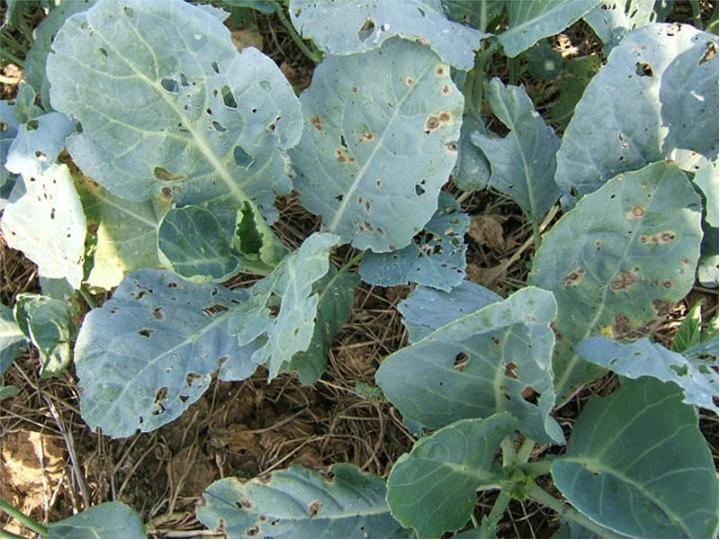
Finding holes in your broccoli leaves could mean a pest infestation.
It is actually very common to find that your broccoli leaves have been eaten by pests. Insects such as cabbage moths, aphids, and flea beetles are the usual suspects. In addition, rodents such as rabbits can also eat your broccoli leaves.
However, they cause more damage than insects because of their size.
Read on to learn more!
What Is Causing Holes In My Broccoli Leaves?
1. Cabbage Worms
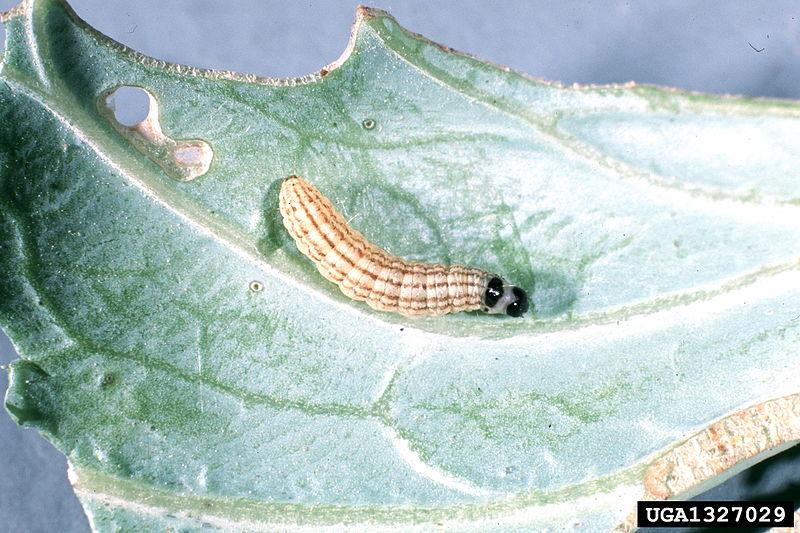
Cabbage worms are destructive pests that may be responsible for eating your broccoli leaves
Almost every gardener struggles with Cabbage worms. These pests are white caterpillars that feed on the leaves of broccoli plants. Both adult and larval cabbage worms can damage broccoli plants.
Adult cabbage worms have white bodies with black spots on their backs; they’re about 1/8 inch long when mature. Larval cabbage worms are smaller and have no marks on their backs; they’re about 1/6 inch long when mature.
Control
Cabbage worms can be quite damaging to your broccoli plants if you don’t take care of them. You can avoid cabbage worm damage by cleaning your garden and removing old leaves that overhang the ground.
However, suppose you do find these worms in your garden. In that case, you can use the biological method of control by using parasitic wasps or any organic biological pesticides that contain Bacillus Thuringiensis (Bt) to get rid of these nasty bugs.
2. Aphids
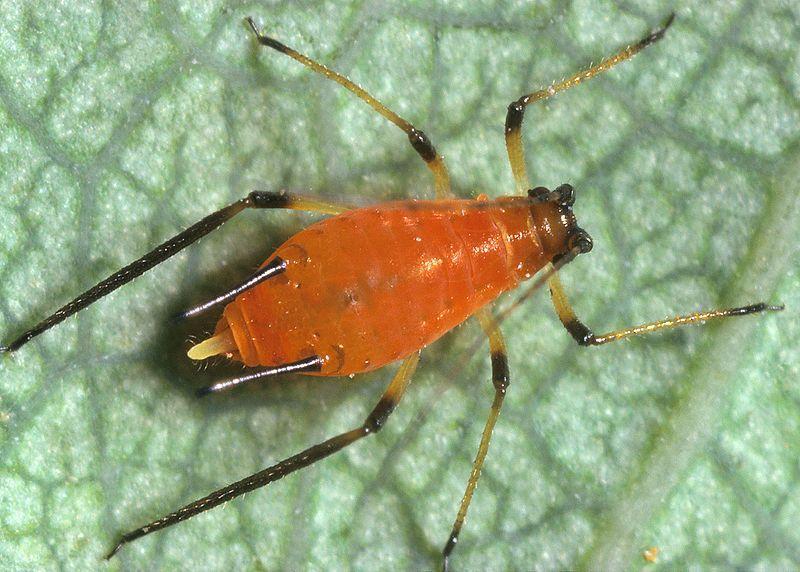
Photo Credit Aphids feed on many plants of the Brassica family, including broccoli.
If you’re growing broccoli plants, aphids can be a problem. Aphids are small, soft-bodied insects that can be seen with the naked eye. These insects feed on a variety of plants, including broccoli. Broccoli plants are susceptible to aphids, especially if grown under too hot or humid conditions.
The most common type of aphid that attacks the broccoli plant is the green peach aphid (Myzus persicae), which is sometimes called an eggplant aphid because of its pear-shaped body. This type of aphid feeds on leaves and produces honeydew that attracts ants, which in turn spread aphids around the area. U
Unfortunately, these ants can also sometimes carry other types of pests as well to or from your garden.
Control
The best way to control aphids on broccoli is to use a natural product that will kill the pest. The best product for this is pyrethrin, which can be purchased from your local garden center or seed store. You should spray the broccoli leaves with this product every few days until the infestation has been controlled.
RELATED: B Is For Broccoli: Brilliant Veggies That Start With ‘B
3. Flea Beetles
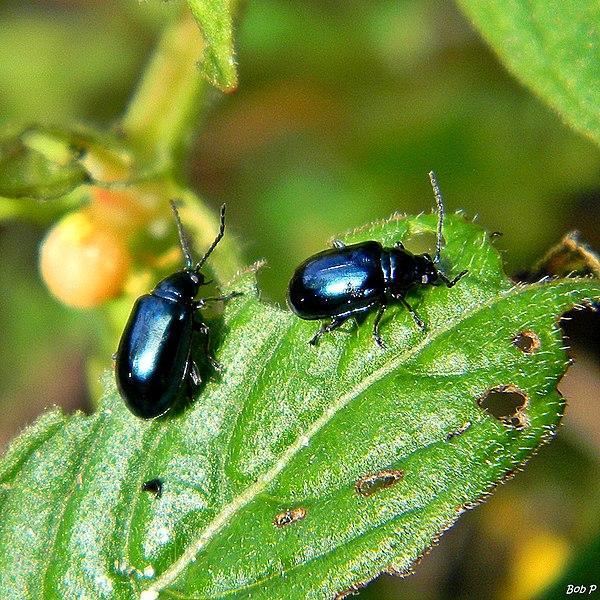
Flea beetles can cause a lot of damage to your broccoli leaves.
Flea beetles are one of the common destructive pests that destroy many different types of plants, including broccoli. The flea beetle is not a true insect but a member of the Chrysomelidae family (also known as lace bugs).
The larvae of these insects feed on the new growth of broccoli plants, causing damage to the entire plant. They usually appear in early spring and are more prevalent during periods of high temperature and humidity.
It is not just the leaves that are affected by flea beetles. The beetles also attack the stems and roots of broccoli plants. They feed on the plant and leave behind scars that can be seen easily.
Control
There are many ways to control flea beetles on broccoli. One way is to get rid of the adult beetles, so they don’t lay more eggs. This can be done by hand, but using a hand-held vacuum cleaner is much better.
The most effective way to prevent flea beetle damage to broccoli is to spray the plants with a systemic insecticide. If you have a lot of broccoli plants in your garden, you might want to consider using a barrier spray made specifically for controlling flea beetles on broccoli plants.
4. Cabbage Loopers
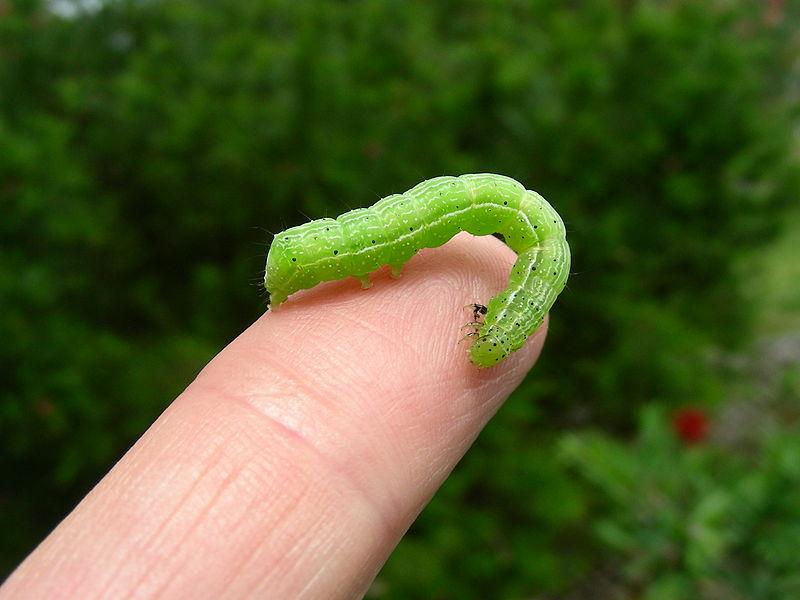
Cabbage loopers not only affect cabbages but broccoli too!
Cabbage loopers are actually common pests that attack broccoli, cabbages, and other plants in the Brassica family. These insects are about 1/4 inch long and yellowish green in color. Cabbage loopers are a type of parasitic fly that lay their eggs on the underside of broccoli leaves.
The larvae hatch and start feeding on the leaves. They cause damage by leaving holes in the leaves and can also spread to other plants.
They have a segmented abdomen, which looks like a leaf of broccoli. Cabbage loopers cause damage to the leaves of the broccoli plant by sucking the sap out of the plant tissue. This causes an uneven, blotchy appearance on the leaves of the plant.
Control
Cabbage loopers cannot be controlled entirely with insecticides, but they can be managed at least somewhat by handpicking them off of your plants before they have time to lay eggs or reproduce. Always check your plants regularly for signs of infestation, as this is one of the best ways to prevent further damage.
5. Diamondback Moths
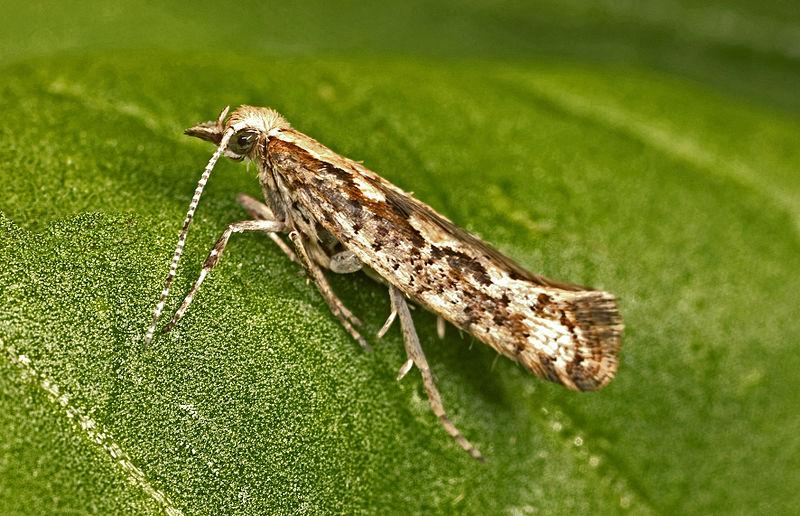
The Diamondbacks moth can cause damage to your broccoli leaves in different stages of its life cycle.
If you discover that something is eating your broccoli leaves, it is likely that Diamondback moths are the culprits. Diamondback moths (Plutella xylostella) are a serious pest of broccoli and cauliflower, with the potential to cause significant crop damage in areas where these crops are grown.
Broccoli is susceptible to diamondback moth larvae because it grows under heavy canopy cover and has small, tender leaves. Broccoli leaves are the most vulnerable part of broccoli plants, and the diamondback moth larvae can damage them.
The adult moth lays eggs on the underside of leaves. When these eggs hatch, the larvae eat their way out of the leaf and feed on the plant until they mature into adults.
Control
The best way to control diamondback moth infestation is by using a pesticide spray designed explicitly for this insect. This will kill off any moths that may be present in your garden or greenhouse. Other control tactics include covering plants with black plastic or cardboard during planting season.
In addition, you can try removing dead leaves and stems before they decay or apply insecticidal soap or horticultural oil as soon as signs appear.
Keeping weeds down around the base of plants and using narrow-leaved cultivars is another way to control this nasty pest.
How To Prevent Pests From Eating Your Broccoli Leaves?
In conclusion, the broccoli plant is one of the most versatile vegetables you can grow. It is a great low-maintenance crop that produces delicious, nutritious leaves, and these leaves are also packed with nutrients.
So, to prevent pests from eating your broccoli leaves, you should try these:
- Grow them in a bag. This will keep the leaves away from hungry bugs and ensure they don’t get nibbled by squirrels, cats, or other animals.
- Grow your broccoli indoors. There are only a few pests that live inside and will be able to attack your plant.
- Cover your plants with netting or other barriers as needed.
Frequently Asked Questions
How do I keep bugs off my broccoli?
It is believed that placing aluminum foil around broccoli plants with the shiny side facing up can prevent aphids, as will laying out banana peels and releasing ladybugs in the vicinity to eliminate the population of aphids. Aphids are one of the ladybugs’ favorite foods.
What do you spray on broccoli plants?
If you prefer to spray your vegetables with something rather than cover them, you might want to consider Bacillus Thuringiensis (BT). You can also spray water or neem oil on your broccoli plants to eliminate pests. However, protecting broccoli from pests by covering it is a good idea.
What animal eats broccoli leaves?
Gardeners aren’t the only people that love broccoli. There are a number of animals, such as worms, rats, squirrels, rabbits, and deer, that enjoy munching on the leaves of broccoli as well. However, the imported cabbage worm, the diamondback moths, and the cabbage looper are the ones that cause the most damage to broccoli.
Why do you soak broccoli in salt water?
Worms often make their homes in the florets because of the abundance of concealing spaces available there. Therefore, when preparing organic or home-grown broccoli, you should be careful about the presence of worms in the florets. So, be sure to rinse the florets thoroughly in salt water.
How do I get rid of broccoli worms?
Products containing Bacillus thuringiensis can be used to control almost all broccoli worms. The bacterium causes disease and eventual death in worms and is completely safe for plants, people, and other helpful insects. The optimum time to use Bacillus thuringiensis is in the afternoon, and it can be found at most garden centers.
Sources For Further Reading
Cabbage, Broccoli & Other Cole Crop Insect Pests. (2022). Retrieved 20 July 2022, from https://hgic.clemson.edu/factsheet/cabbage-broccoli-other-cole-crop-insect-pests/
Home Lawn & Garden Resources | What’s Eating My Vegetables?. (2013). Retrieved 20 July 2022, from https://ag.umass.edu/home-lawn-garden/fact-sheets/whats-eating-my-vegetables
Broccoli | Diseases and Pests, Description, Uses, Propagation. (2022). Retrieved 20 July 2022, from https://plantvillage.psu.edu/topics/broccoli/infos#!
Editor’s Recommendations
How to Get Rid of Bugs in Plants? Plus Their Identification & Effective Management!
Are Japanese Beetle Traps Helpful for Organic Pest Management?







